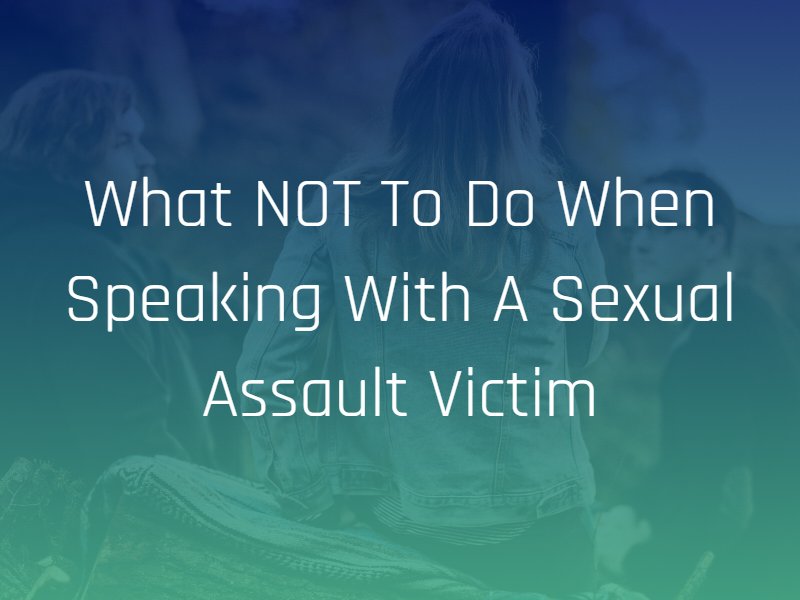When someone you love confides in you that he or she experienced sexual assault, it can be difficult to know what to say. You may feel overwhelmed, worried, and angry at the person who hurt your friend. You may be confused at how something like this can happen.
These feelings are valid, but it is important to understand what your loved one is going through and do your best to support him or her. There are certain statements or assumptions you should avoid when speaking to your loved one.
#1: Do Not Blame Your Loved One
Confiding in someone about experiencing sexual assault is very difficult. Your loved one may feel ashamed, embarrassed, or scared. It is important to realize that, if he or she is telling you about the assault, it is because he or she trusts you. It is equally important not to break that trust.
Never blame your loved one for his or her own sexual assault. Leave any judgement or investigation to law enforcement. Instead, support your loved one and tell him or her that you believe his or her story. Remind your loved one that the assault is not his or her fault and that he or she did not deserve what happened.
#2: Do Not Ask Invasive Questions
When a survivor shares his or her story, there will likely be details that he or she does not want to share. He or she may not want to talk about how the assault happened or identify the perpetrator right away. You should avoid asking invasive or unnecessary questions about the perpetrator, the assault, or what your loved one was doing prior to the assault.
Instead, focus your questions on what you can do to help your loved one. Try asking one of the following questions:
- Do you feel safe? Is there anything I can do to help you?
- Do you need help going to the hospital or police station?
- Would you like me to go with you to the hospital or police station?
- Do you need help finding resources?
#3: Avoid Talking About the Perpetrator
If you know who the perpetrator is, it can be easy to express shock or disbelief. You may be tempted to talk about the perpetrator’s good qualities and memories you have with him or her. However, these actions would completely dismiss what your loved one confided to you—and may make him or her feel worse about the situation.
Do not focus on the perpetrator. Instead, focus on your loved one and what you can do to help him or her get through this situation.
#4: Do Not Ask Your Loved One to Get Over It
Sexual assault can be an uncomfortable topic for many people. It is very easy to want to forget about what happened and avoid talking about it altogether—but if you feel uncomfortable simply speaking about sexual assault, it is important to remember what your loved one who experienced the assault is going through.
Asking your loved one to forget or get over what happened in an attempt to return to normal is very harmful. Your loved one may feel like he or she cannot confide in you or is not allowed to feel upset, angry, or hurt about the assault. This can be very harmful to their healing journey. Instead, allow your loved one to feel his or her emotions and reassure him or her that you will provide the support he or she needs.
If you are a survivor of sexual assault, you are not alone, and help is available. To learn more about your legal options, contact a sexual assault attorney with experience advocating for survivors.

